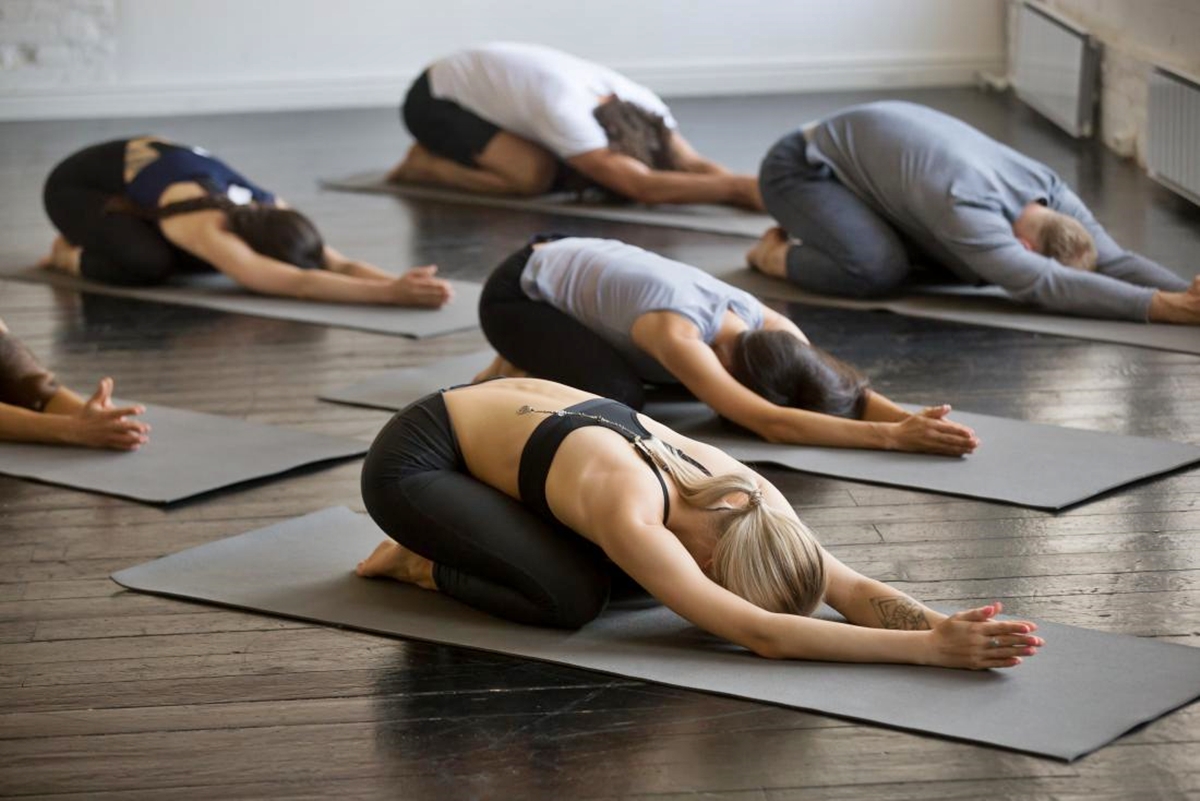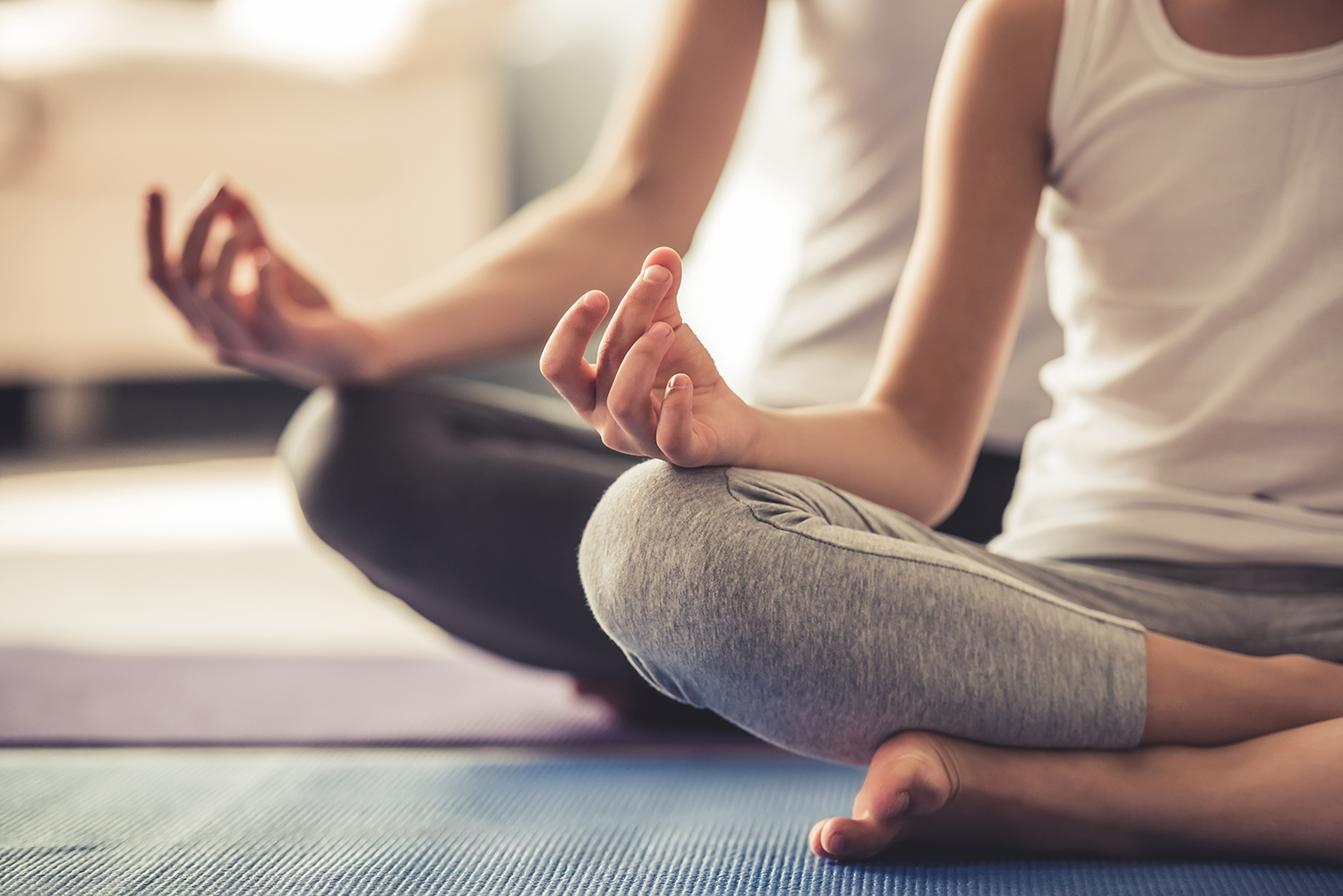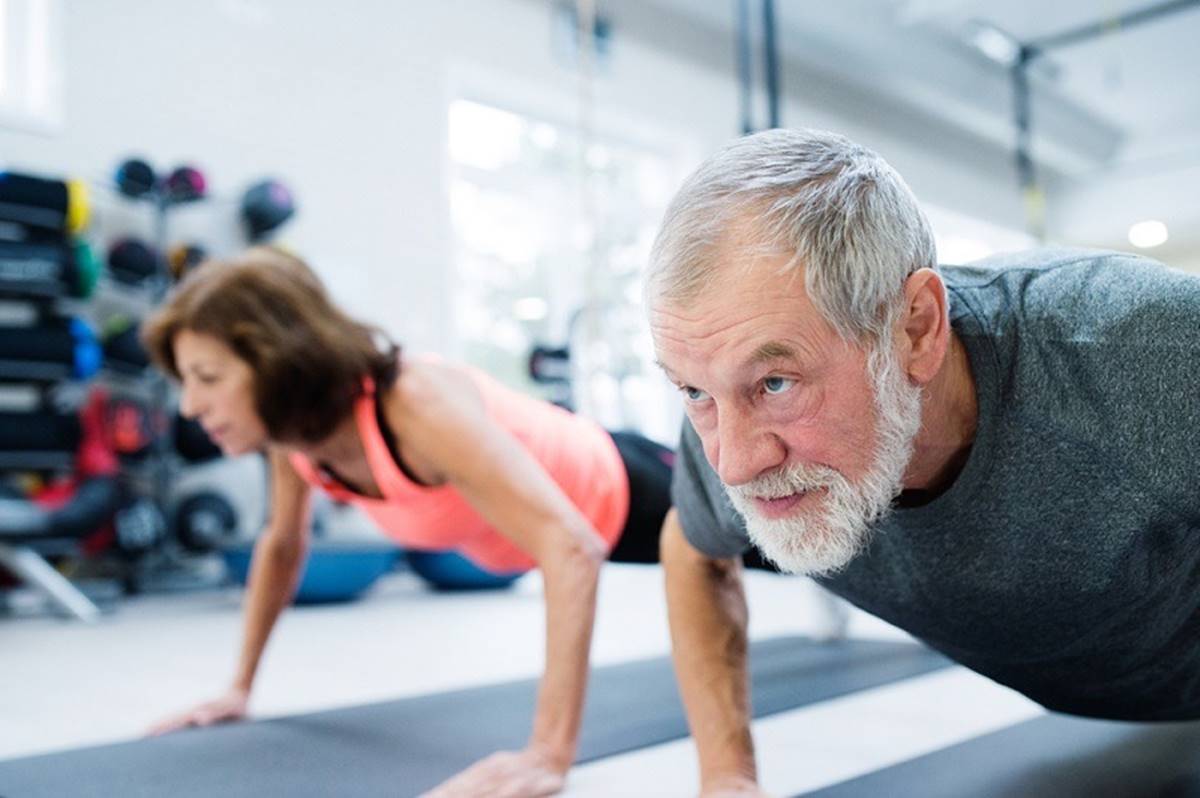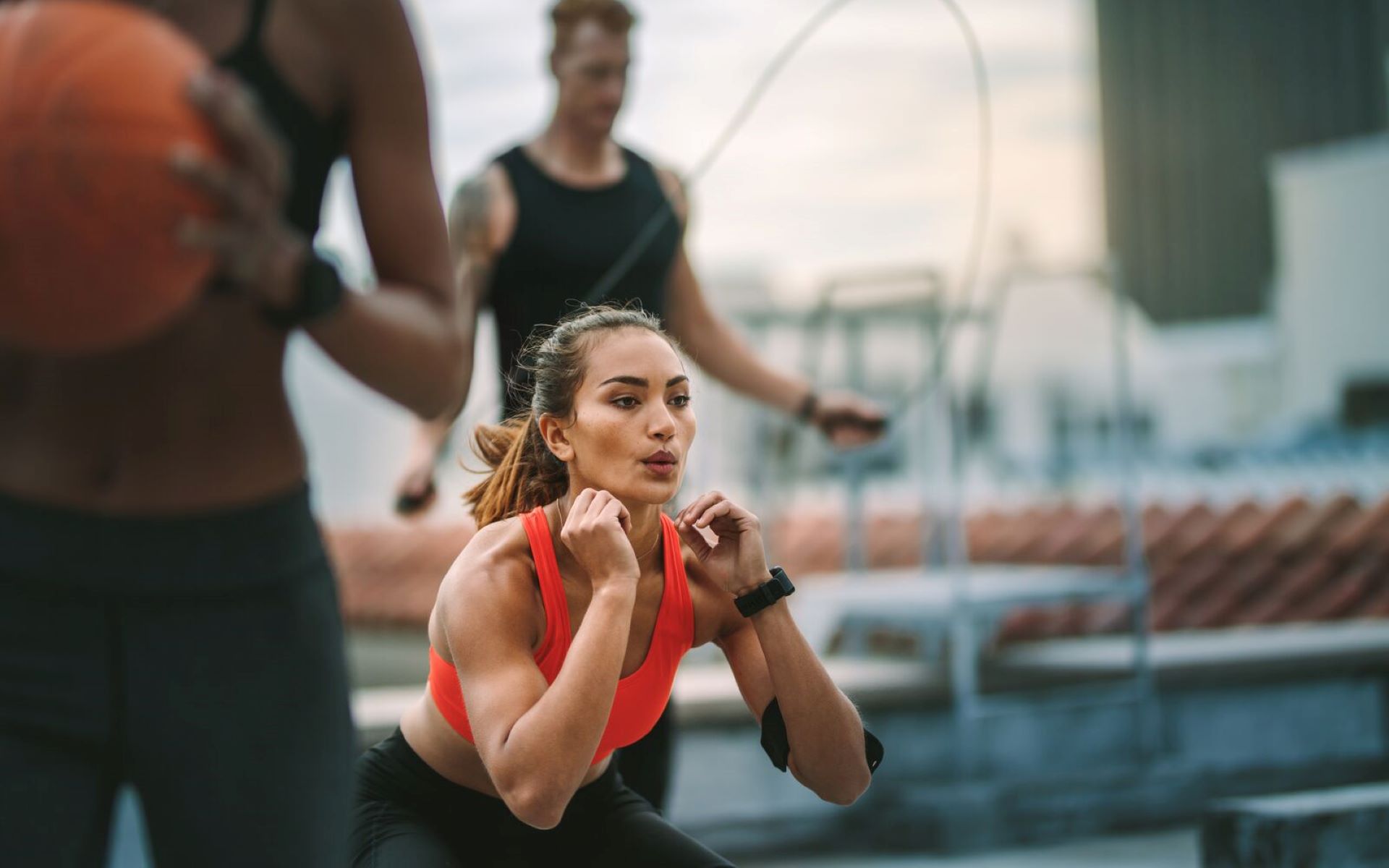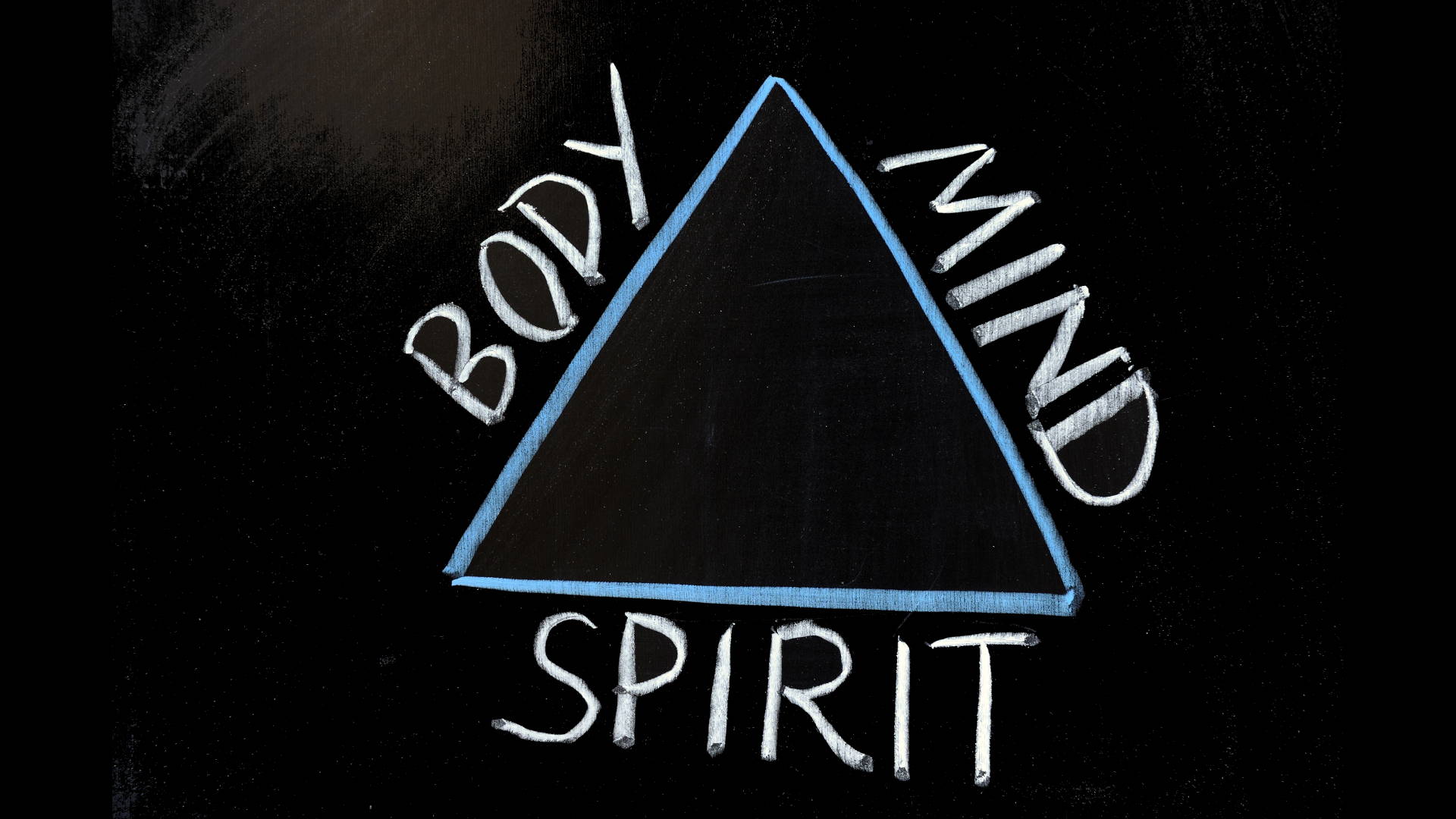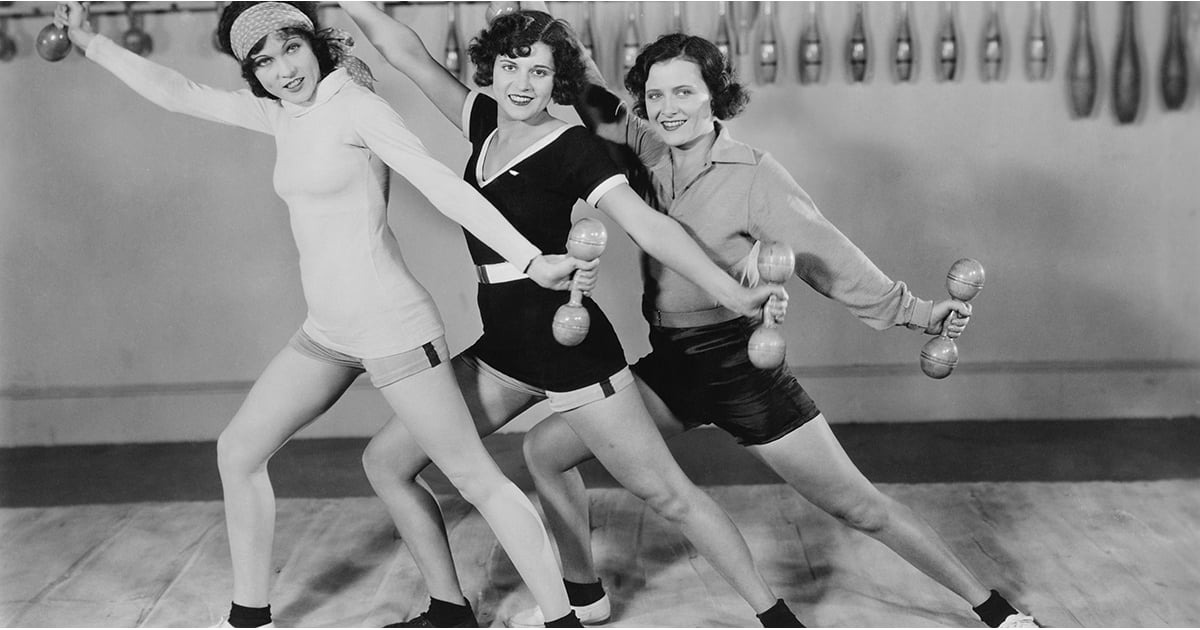Home>Misc>Featured>How Can Physical Exercise Benefit Social Health?
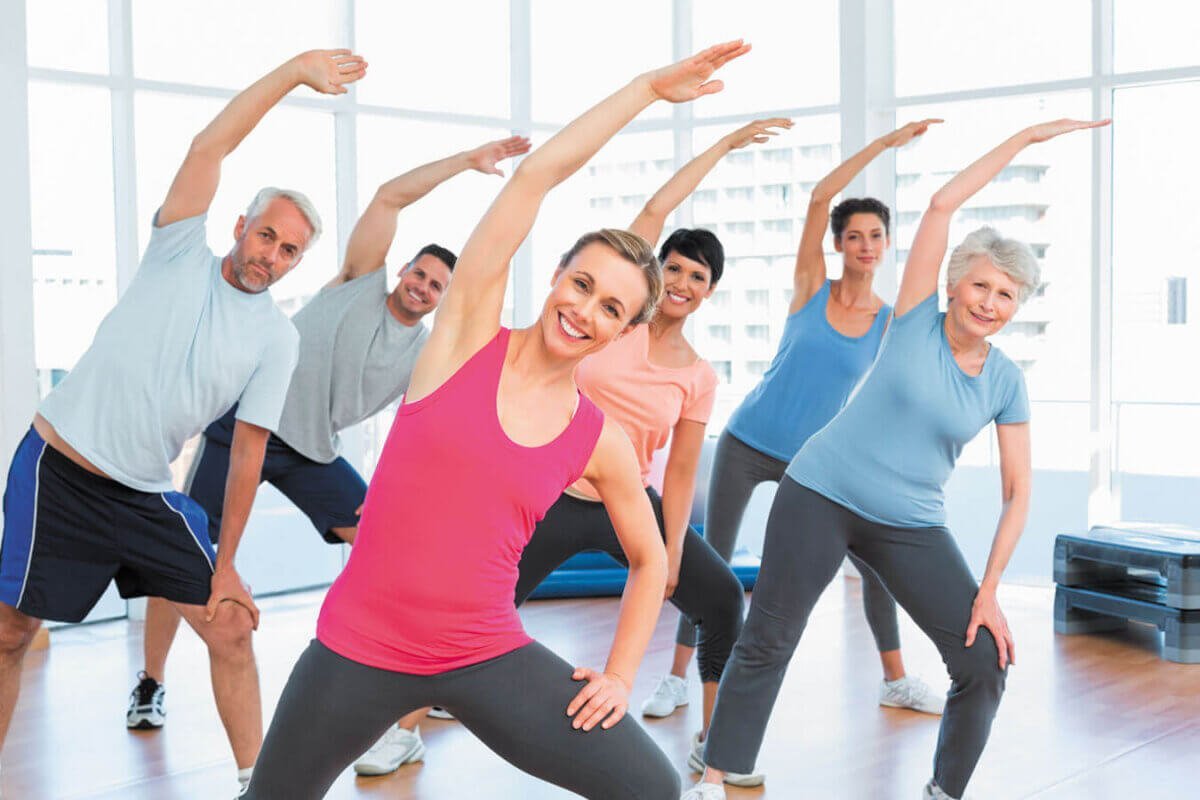

Featured
How Can Physical Exercise Benefit Social Health?
Modified: January 2, 2024
Discover how physical exercise can enhance social health and well-being. Featured article exploring the positive impact of physical activity on interpersonal relationships and social connections.
Introduction
Physical exercise is often associated with the numerous benefits it offers for our physical health. From improving cardiovascular fitness to enhancing strength and flexibility, exercise plays a vital role in maintaining our overall well-being. However, what is often overlooked is the significant impact that physical exercise can have on our social health.
Social health refers to our ability to form positive and satisfying relationships with others, as well as our capacity to actively engage in social activities and contribute to our communities. It encompasses various aspects such as social interaction, emotional well-being, self-confidence, and a sense of belonging.
In recent years, researchers have begun to explore the connection between physical exercise and social health, uncovering a wealth of evidence highlighting the positive effects of physical activity on our social well-being. By understanding and harnessing these benefits, individuals can not only improve their physical fitness but also enhance their overall social health and well-being.
This article aims to explore the relationship between physical exercise and social health. We will delve into how physical exercise can provide increased opportunities for social interaction, enhance mood and psychological well-being, improve self-confidence and self-esteem, develop social skills, promote a sense of belonging and inclusion, and reduce social isolation and loneliness.
Whether you are a fitness enthusiast or someone looking to improve your social connections, understanding the powerful interplay between physical exercise and social health can be transformative. So, let’s dive in and discover how engaging in regular physical activity can benefit our social lives.
The Relationship Between Physical Exercise and Social Health
When we engage in regular physical exercise, we not only reap the rewards of improved physical health but also experience a myriad of positive effects on our social well-being. The connection between physical exercise and social health is multi-faceted and interdependent, with each influencing and reinforcing the other.
One of the key ways in which physical exercise enhances social health is by providing increased opportunities for social interaction. Whether it’s participating in group fitness classes, joining a sports team, or simply going for a walk or jog in the park, exercise brings people together. These social interactions not only foster a sense of connection but also provide a platform for building new relationships and strengthening existing ones. Engaging in physical activity with others can create a sense of camaraderie, shared goals, and mutual support, leading to the formation of lasting friendships.
In addition to facilitating social interaction, physical exercise has a profound impact on our mood and psychological well-being. Exercise stimulates the release of endorphins, the body’s natural feel-good chemicals, which can boost our mood and reduce feelings of stress and anxiety. When we feel happier and more mentally resilient, we are more likely to engage in social activities with a positive mindset, further enhancing our social health.
Furthermore, engaging in physical exercise can improve our self-confidence and self-esteem. As we set and achieve goals in our fitness journeys, we develop a sense of accomplishment and self-efficacy. This newfound confidence spills over into other areas of our lives, including our social interactions. When we feel good about ourselves and our abilities, we are more likely to approach social situations with confidence, contributing to more fulfilling and meaningful connections with others.
Physical exercise also plays a crucial role in the development of social skills. Whether it’s coordination, teamwork, communication, or problem-solving, many sports and fitness activities require us to engage in these skills. Through regular participation in exercise, we refine and hone these social skills, making us more adept at navigating social situations and forming meaningful relationships.
Additionally, physical exercise promotes a sense of belonging and inclusion. Whether it’s joining a fitness community, participating in group exercise classes, or being part of a sports team, exercise provides us with a sense of identity and membership. This sense of belonging can have a profound impact on our social health, as it fosters feelings of acceptance, support, and connection with others.
Furthermore, physical exercise can help combat social isolation and loneliness. Engaging in regular exercise provides us with opportunities to connect with others, reducing feelings of isolation and creating a sense of community. Additionally, exercise can serve as a distraction from negative thoughts and emotions, providing a healthy outlet to cope with the challenges of social isolation.
The relationship between physical exercise and social health is complex and mutually reinforcing. By engaging in regular physical activity, we not only improve our physical fitness but also enhance our social well-being. The benefits of increased social interaction, enhanced mood, improved self-confidence, developed social skills, a sense of belonging, and reduced social isolation all contribute to a more fulfilling and satisfying social life.
Increased Opportunities for Social Interaction
One of the significant benefits of physical exercise for social health is the increased opportunities it provides for social interaction. Engaging in regular physical activity opens doors to connect with like-minded individuals, build new relationships, and strengthen existing ones.
Participating in group fitness classes, such as aerobics, yoga, or dance, brings people together under a shared goal of improving their physical fitness. These classes offer a supportive and encouraging environment where individuals can connect with others who have similar interests. It’s not uncommon to strike up conversations with fellow participants before, during, or after the class, creating a sense of community and camaraderie.
Sports activities also provide ample opportunities for social interaction. Joining a sports team allows individuals to collaborate and compete with others, fostering teamwork and a sense of belonging. Whether it’s a game of soccer, basketball, or tennis, the shared experience of training, strategizing, and playing together encourages social bonding and the formation of friendships.
Engaging in outdoor activities, such as hiking, cycling, or running, also offers opportunities for social interaction. Group outings and events are organized by fitness enthusiasts, often open to the public, where individuals can come together to explore the outdoors while engaging in physical exercise. These events create a sense of community and enable individuals to connect with others who share a passion for both fitness and nature.
Even individual exercises, such as walking or jogging, can lead to unexpected social encounters. Parks, trails, and recreational areas are often frequented by like-minded individuals seeking to improve their fitness. Striking up conversations with other walkers or runners can be a spontaneous and enjoyable way to connect with others and expand one’s social circle.
In addition to in-person interactions, the advent of technology has opened up a whole new realm of social interaction through virtual fitness communities and online platforms. Through social media groups, fitness forums, and fitness apps, individuals can connect with others who share similar goals and interests. These platforms provide a space for individuals to share their fitness journeys, seek advice, and support one another, creating a sense of virtual community and fostering social bonds.
Overall, physical exercise presents numerous opportunities for social interaction. It brings people together in various settings, from fitness classes to sports teams to outdoor activities. Through these interactions, individuals can establish connections, form relationships, and find support and motivation in their fitness endeavors.
Enhanced Mood and Psychological Well-being
Physical exercise has a profound impact on our mood and psychological well-being. Engaging in regular physical activity can boost our overall mood, reduce feelings of stress and anxiety, and promote better mental health.
When we exercise, our body releases endorphins, which are the body’s natural “feel-good” chemicals. These endorphins interact with receptors in our brain, helping to reduce feelings of pain and elevate our mood. The release of endorphins during and after exercise creates a sense of well-being and can even produce a state of euphoria commonly referred to as the “runner’s high.”
Regular exercise has been shown to alleviate symptoms of depression and anxiety. Exercise stimulates the production of neurotransmitters such as serotonin, dopamine, and norepinephrine, which are essential for regulating mood and emotions. By increasing the levels of these neurotransmitters, physical activity can have an antidepressant and anxiolytic effect, effectively reducing symptoms of depression and anxiety.
In addition to the chemical changes that occur in our brain, physical exercise provides a healthy outlet for managing stress and reducing the negative impact of everyday life challenges. Engaging in physical activity helps to channel and release pent-up tension and stress, providing a sense of relief and relaxation. Whether it’s going for a brisk walk or engaging in an intense workout, exercise can serve as a form of self-care and therapy for our mental well-being.
Along with its immediate mood-boosting effects, exercise has long-term benefits for our overall psychological well-being. Regular physical activity has been linked to improved cognitive function, enhanced memory, and increased attention span. Exercise stimulates the growth of new brain cells and promotes the formation of connections between neurons, leading to improved cognitive functioning and mental clarity.
Furthermore, engaging in physical exercise can improve sleep quality, which is vital for our mental health and emotional well-being. Regular physical activity helps to regulate our internal body clock and promote a more restful sleep. This, in turn, can have a significant impact on our mood and overall mental well-being.
Overall, the enhanced mood and psychological well-being resulting from physical exercise can have a profound impact on our social health. When we feel happier, more balanced, and less stressed, we are better equipped to engage in social interactions and form meaningful relationships with others. The positive effects of exercise on our mood and mental well-being contribute to an overall sense of positivity, resilience, and emotional well-being that extends into our social interactions and relationships.
Improved Self-confidence and Self-esteem
Physical exercise plays a crucial role in improving self-confidence and self-esteem. When we engage in regular physical activity and see the positive changes in our bodies and abilities, it has a significant impact on how we perceive ourselves and our overall self-worth.
Setting and achieving fitness goals can be empowering and boost our self-confidence. Whether it’s improving endurance, increasing strength, or reaching a specific fitness milestone, each achievement builds a sense of accomplishment and self-efficacy. As we see ourselves progress and overcome physical challenges, we develop a belief in our capabilities and subsequently gain confidence in ourselves. This newfound confidence spills over into other aspects of our lives, including our social interactions, and plays a crucial role in forming meaningful relationships.
Physical exercise also improves our body image, which is closely tied to self-esteem. Regular exercise helps to tone and strengthen our muscles, improve posture, and enhance overall physical appearance. As we become more fit and toned, we may also experience weight loss or a more defined physique, which can positively impact our body image perception. Feeling good about our bodies can boost our self-esteem and improve our self-image, allowing us to engage in social interactions with a greater sense of self-assurance.
Moreover, physical exercise provides an outlet to challenge ourselves and step out of our comfort zones. Trying new activities or pushing ourselves to go further or faster in our workouts helps to build resilience and overcome self-limiting beliefs. Each time we surpass our perceived limits, we prove to ourselves that we are capable of more than we thought, leading to an increase in self-esteem.
The social aspect of physical exercise can also contribute to improved self-confidence and self-esteem. Participating in group fitness classes or team sports provides opportunities for social validation and support. When we receive positive feedback, encouragement, and recognition from others, it reinforces our sense of worth and enhances our self-confidence. Additionally, the support and camaraderie found within these groups can create a sense of belonging and acceptance, further bolstering our self-esteem.
In summary, physical exercise has a profound impact on enhancing self-confidence and self-esteem. Achieving fitness goals, improving body image, pushing beyond limits, and receiving social validation are all factors that contribute to an improved sense of self-worth. When we feel confident and have a positive self-image, we are more likely to approach social interactions with a greater sense of self-assurance, leading to more fulfilling and meaningful connections with others.
Development of Social Skills
Engaging in physical exercise not only improves our physical health but also plays a vital role in the development of social skills. Through participation in sports, fitness classes, and group activities, we have the opportunity to refine and enhance our ability to interact with others and form meaningful connections.
Many sports and fitness activities require teamwork and collaboration. Whether it’s playing on a sports team, participating in group fitness classes, or engaging in partner exercises, these activities allow us to practice important social skills such as communication, cooperation, and problem-solving. Working together towards a common goal fosters the development of teamwork and reinforces the importance of effective communication, ensuring that these skills become second nature in our social interactions.
Physical exercise also provides a platform to challenge and overcome social barriers. It encourages individuals to step out of their comfort zones and engage with others, leading to increased social confidence and improved social skills. As we interact with different individuals and navigate diverse social dynamics, we develop adaptability, empathy, and the ability to understand and respect others’ perspectives. These skills are invaluable in building and maintaining positive relationships.
In addition to in-person interactions, virtual fitness communities and online platforms provide another avenue for developing social skills. Through forums, social media groups, and fitness apps, individuals can engage in discussions, seek advice, and provide support to others. Participating in these online communities fosters communication and digital social skills, which are increasingly important in today’s interconnected world.
Regular physical exercise can also serve as a catalyst for personal growth and self-awareness, which are integral to the development of social skills. As we engage in physical activity, we are challenged both physically and mentally, pushing us to confront our limitations and develop resilience. Overcoming these challenges promotes self-reflection and self-awareness, allowing us to better understand ourselves and our interactions with others. This self-awareness lays the foundation for the development of social skills, as it enables us to recognize our strengths, weaknesses, and areas for improvement in our social interactions.
The development of social skills through physical exercise extends beyond the workout setting and into our daily lives. The lessons learned, such as teamwork, communication, empathy, and adaptability, can be applied to various social contexts, from the workplace to personal relationships. The confidence gained through social skill development in physical exercise translates into increased self-assurance and effectiveness when interacting with others.
In summary, physical exercise provides a unique opportunity to develop and enhance social skills. Whether it’s through teamwork in sports, collaboration in fitness classes, or engagement in virtual fitness communities, exercise allows us to practice and improve essential social skills. These skills not only enrich our social interactions but also contribute to personal growth and overall well-being.
Promotion of a Sense of Belonging and Inclusion
Engaging in physical exercise promotes a sense of belonging and inclusion, which are essential elements of social health. Through participation in sports, group fitness activities, and fitness communities, individuals can find a supportive environment where they feel accepted, valued, and included.
Joining a sports team or participating in group fitness classes provides a sense of belonging and camaraderie. Being part of a team or a fitness community fosters a shared sense of purpose, as individuals come together to work towards common goals. This shared experience creates a sense of unity, contributing to a feeling of belonging and inclusion. It’s not just about the exercise itself, but the bonds that are formed through the journey of working towards fitness objectives together.
Physical exercise also breaks down barriers and promotes inclusivity. Regardless of age, gender, background, or fitness level, anyone can participate in some form of physical activity. Fitness communities and programs often emphasize inclusivity and create a safe space where individuals can feel comfortable and accepted. This inclusivity promotes a sense of belonging and allows individuals to connect with others who share similar interests and goals.
In addition to fostering a sense of belonging within established fitness communities, physical exercise also provides opportunities to create new communities and support networks. People often form connections during group activities or classes and take these relationships beyond the gym or sports field. Engaging in physical exercise together can be a catalyst for building lasting friendships and expanding social circles, leading to a more fulfilling and socially rich life.
Furthermore, physical exercise can break down societal barriers and promote inclusion on a broader scale. There are initiatives and programs aimed at making exercise accessible to individuals from marginalized communities, promoting diversity and inclusion in the fitness industry. These efforts ensure that everyone has the opportunity to engage in physical activity and benefit from the sense of belonging and inclusion that it can provide.
Participating in physical exercise also contributes to a sense of belonging and inclusion by promoting body positivity and acceptance. In diversified fitness communities, individuals can find acceptance and support regardless of their body shape, size, or appearance. These inclusive spaces encourage individuals to embrace their bodies and focus on their overall health and well-being rather than conforming to societal beauty standards. This emphasis on body positivity helps to create an environment where individuals feel included and valued, fostering a deeper sense of belonging.
In summary, physical exercise promotes a sense of belonging and inclusion by providing a supportive and inclusive environment where individuals can connect with others who share similar interests and goals. Whether it’s through team sports, group fitness activities, or inclusive fitness communities, engaging in physical exercise helps individuals feel accepted, valued, and part of a larger community. This sense of belonging not only enhances social health but also contributes to overall well-being.
Reduction in Social Isolation and Loneliness
Physical exercise plays a crucial role in reducing social isolation and loneliness, which are prevalent issues in today’s society. Engaging in regular physical activity provides opportunities for social connection, fosters a sense of belonging, and combats the negative effects of isolation and loneliness.
Participating in group fitness classes, team sports, or fitness communities offers an immediate solution to social isolation. These activities create a supportive environment where individuals can connect with others who share similar interests and goals. Engaging in exercise together provides a platform for social interaction and can lead to the formation of friendships. Regular attendance at these group activities builds familiarity and enables individuals to develop a sense of community, reducing feelings of isolation and fostering social connections.
In addition to the social benefits gained through group activities, physical exercise itself can serve as a distraction from feelings of loneliness. When we exercise, our focus is directed towards the activity at hand, diverting our attention from negative thoughts and emotions. This shift in focus can provide temporary relief from the feelings of loneliness and isolation, offering a much-needed respite from the challenges that accompany these emotions.
Engaging in physical exercise also provides individuals with a sense of purpose and structure in their daily lives. Having a regular exercise routine helps to establish a routine and create a sense of purpose. When individuals have a purposeful and structured life, they are less likely to feel isolated and lonely. Additionally, exercise can serve as a positive coping mechanism for dealing with the stress and challenges that contribute to feelings of loneliness.
Physical exercise can also serve as a bridge to other social activities and opportunities. Joining a fitness class or sports team introduces individuals to a network of like-minded individuals and may provide access to social events or gatherings outside of the exercise setting. These connections and opportunities for engagement outside of exercise can further reduce social isolation and broaden social networks.
Furthermore, physical exercise helps to improve overall well-being, including mental and emotional health. Regular exercise promotes the release of endorphins, which can boost mood and reduce feelings of anxiety and depression. When we feel good mentally and emotionally, we are more likely to seek out social interactions and engage with others, reducing the risk of social isolation.
Overall, physical exercise is a powerful tool in reducing social isolation and feelings of loneliness. By providing opportunities for social connection, distractions from negative emotions, a sense of purpose and structure, and improving overall well-being, exercise can help individuals combat the adverse effects of isolation and loneliness. Making physical exercise a regular part of one’s routine can contribute to a more socially connected and fulfilling life.
Conclusion
Physical exercise has the remarkable ability to positively impact our social health in a multitude of ways. Through increased opportunities for social interaction, enhanced mood and psychological well-being, improved self-confidence and self-esteem, the development of social skills, the promotion of a sense of belonging and inclusion, and the reduction of social isolation and loneliness, physical exercise contributes to a richer and more fulfilling social life.
By engaging in regular physical activity, individuals can forge meaningful connections with others, forming friendships and support networks. Whether through group fitness classes, sports teams, or virtual fitness communities, exercise brings people together, fostering a sense of unity and camaraderie.
Moreover, physical exercise has a profound impact on our emotional well-being. The release of endorphins and the reduction of stress and anxiety contribute to a positive mood and improved mental health, allowing for more joyful and rewarding social interactions.
Engaging in physical exercise also enhances self-confidence and self-esteem. As individuals set and achieve fitness goals, they develop a belief in their abilities, resulting in increased self-assurance and a positive self-image. This confidence spills over into social interactions, enabling individuals to connect with others more effectively and authentically.
Physical exercise is not solely about the physical benefits; it also promotes the development of essential social skills. Through teamwork, communication, and collaboration, individuals become adept at navigating social situations and forming meaningful relationships.
Furthermore, physical exercise fosters a sense of belonging and inclusion. By joining fitness communities and participating in group activities, individuals find acceptance, support, and a shared sense of purpose. This inclusive environment allows individuals to connect with others, breaking down barriers and fostering a sense of unity.
Lastly, physical exercise plays a vital role in reducing social isolation and loneliness. By providing opportunities for social connection, distractions from negative emotions, a sense of purpose, and improved overall well-being, exercise combats the detrimental effects of isolation and offers a path to social engagement.
In conclusion, physical exercise is not only a means to improve physical health but also an effective strategy to enhance social health. By incorporating regular physical activity into our lives, we can experience the manifold benefits it brings to our social interactions, emotional well-being, self-confidence, and overall sense of belonging. Embracing the power of physical exercise can lead to a more vibrant and fulfilling social life, paving the way for lasting connections and improved social health.

